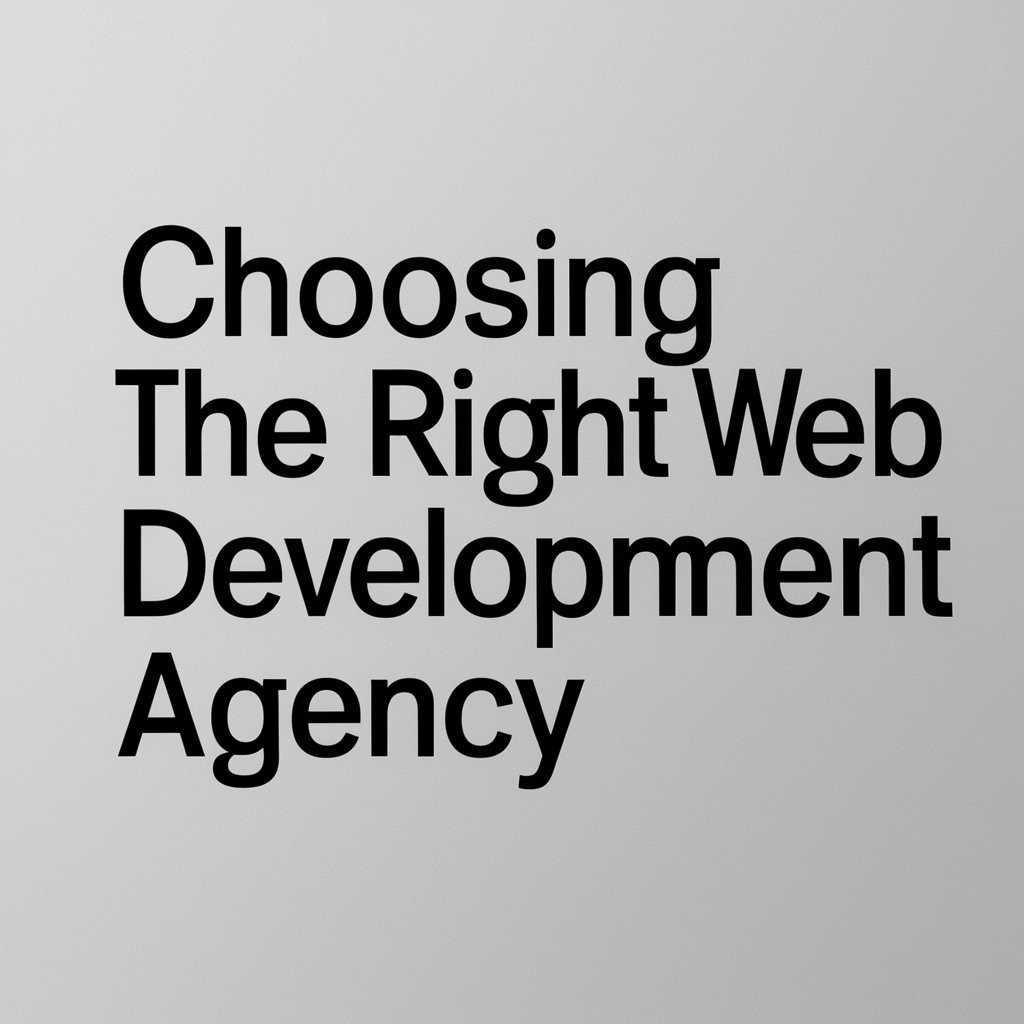Choosing the right web development agency is crucial for any business looking to establish or enhance its online presence. A well-designed and functional website can significantly impact business growth, customer engagement, and overall success. In this guide, we’ll explore the key factors to consider when selecting a web development agency, ensuring you make an informed decision that aligns with your business goals.
Defining a Web Development Agency
A web development agency specializes in creating, maintaining, and optimizing websites. These agencies employ a team of skilled professionals, including web developers, designers, project managers, and digital marketers, who work collaboratively to deliver comprehensive web solutions. Their roles encompass everything from front-end and back-end development to user experience design and digital marketing integration.
Types of Web Development Services
Web development agencies offer a variety of services tailored to meet different business needs. Understanding these services can help you choose an agency that specializes in the type of development required for your project.
Front-end Development
Front-end development focuses on the visual aspects of a website, including layout, design, and interactivity. It involves using languages like HTML, CSS, and JavaScript to create a user-friendly interface.
Back-end Development
Back-end development involves building the server-side components of a website, ensuring it functions correctly and efficiently. This includes database management, server configuration, and application logic.
Full-stack Development
Full-stack development encompasses both front-end and back-end development. Full-stack developers have the skills to manage all aspects of a website, making them versatile and highly valuable.
E-commerce Development
E-commerce development specializes in creating online stores and shopping platforms. This involves integrating payment gateways, shopping carts, and inventory management systems to provide a seamless shopping experience.
CMS Development
Content Management System (CMS) development involves creating platforms like WordPress, Joomla, or Drupal that allow users to easily manage and update website content without needing technical expertise.
Custom Web Development
Custom web development involves creating tailor-made solutions to meet specific business needs. This can include unique functionalities, custom integrations, and bespoke designs.
Key Factors to Consider When Choosing a Web Development Agency
Selecting the right web development agency requires careful consideration of several key factors to ensure they align with your business needs and objectives.
Experience and Expertise
An agency’s experience and expertise are critical indicators of their ability to deliver successful projects. Look for agencies with a proven track record in your industry and a portfolio that showcases their skills.
Portfolio and Case Studies
Reviewing an agency’s portfolio and case studies provides insight into their previous work and capabilities. Look for projects similar to yours and evaluate the quality and functionality of their completed websites.
Client Testimonials and Reviews
Client testimonials and reviews offer valuable feedback on an agency’s performance, reliability, and customer service. Look for positive reviews and any recurring issues mentioned by previous clients.
Industry Knowledge
An agency with industry-specific knowledge can better understand your business needs and challenges. They can offer tailored solutions and insights that align with your industry standards and trends.
Communication and Collaboration
Effective communication and collaboration are essential for a successful partnership. Ensure the agency is responsive, transparent, and willing to involve you in the development process.
Pricing and Budget
Understanding the agency’s pricing structure and budget requirements is crucial. Ensure their pricing aligns with your budget and that there are no hidden fees or unexpected costs.
Post-launch Support and Maintenance
Ongoing support and maintenance are vital for keeping your website up-to-date and functioning smoothly. Ensure the agency offers reliable post-launch support and has a clear maintenance policy.
Understanding Your Business Needs
Before approaching a web development agency, it’s essential to clearly define your business needs and project scope. This involves setting clear objectives, identifying your target audience, and determining your budget.
Defining Your Project Scope
Clearly outline the features, functionalities, and goals of your website. This helps the agency understand your requirements and provide accurate proposals.
Setting Clear Objectives and Goals
Define what you want to achieve with your website, such as increasing sales, improving user engagement, or expanding your online presence. Clear goals guide the development process and measure success.
Identifying Your Target Audience
Understanding your target audience helps in creating a website that caters to their needs and preferences. This involves demographic research, user personas, and analyzing user behavior.
Determining Your Budget
Establishing a realistic budget is crucial for aligning your expectations with what you can afford. This includes considering development costs, ongoing maintenance, and any additional features.
Researching Potential Agencies
Finding the right web development agency involves thorough research and evaluation. Here are some steps to help you identify and assess potential agencies.
Where to Find Web Development Agencies
You can find web development agencies through online searches, industry directories, and referrals from colleagues or business networks.
How to Evaluate Their Online Presence
Review the agency’s website, blog, and social media profiles to assess their expertise, professionalism, and engagement with clients.
Reviewing Their Portfolios and Case Studies
Examine the agency’s portfolio and case studies to understand their capabilities and the types of projects they have completed.
Checking References and Client Reviews
Contact the agency’s previous clients to get firsthand feedback on their experience, reliability, and quality of work.





